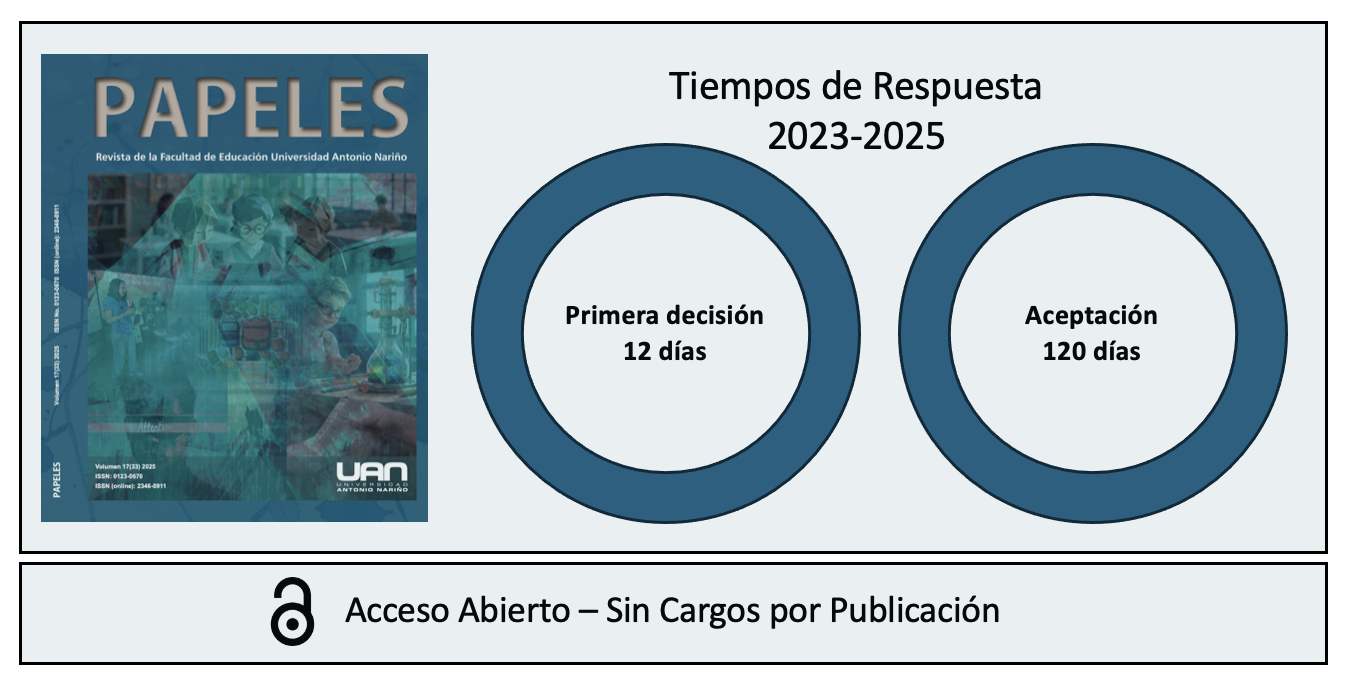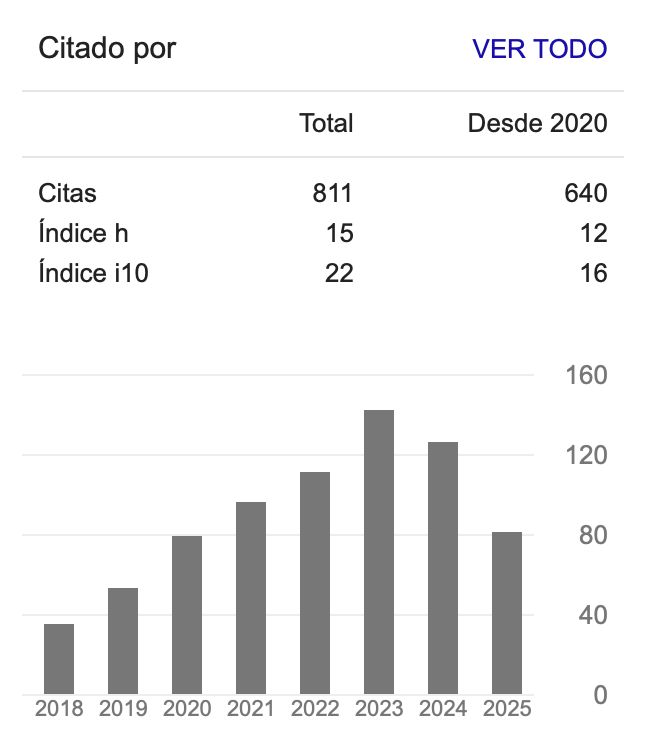Red de formación profesional: gestión del conocimiento, innovación y emprendimiento
Professional training network: Knowledge management, innovation, and entrepreneurship
DOI:
https://doi.org/10.54104/papeles.v13n26.1002Palabras clave:
emprendimiento, procesamiento de información, transformación social, análisis de redesResumen
En la era Covid-19, el aula tradicional fue sustituida por la pizarra electrónica, evidenciando una brecha entre formación académica, profesional y laboral. El objetivo del presente trabajo fue responder a la cuestión: ¿Existen diferencias entre estos tipos de formación reflejados en la literatura y las opiniones de expertos con respecto a la información circundante en los medios y redes en torno a oportunidades, retos y desafíos laborales? Para responder a la cuestión se realizó un estudio exploratorio cualitativo con entrevistas en profundidad y análisis del discurso de tres participantes en una red de formación profesional. Se establecieron las categorías de entrenamiento, conocimiento, innovación y emprendimiento como ejes de la agenda formativa. Se encontró una estructura de categorías e indicadores que explican las diferencias entre los modelos formativos. En relación con la literatura consultada que destaca la transferencia de conocimiento entre los actores, se discute la importancia de tecnologías, dispositivos y redes para el establecimiento de la compatibilidad entre las demandas formativas y los recursos institucionales y organizacionales.
Descargas
Citas
Adenike, A. (2011). Organization climate as a predictor of employee job satisfaction. Business Intelligence Journal. 4, 151-166
Arnau, L. & Montané, J. (2010). Contributions on the conceptual relationship between attitude and competence, from the theory of change of attitudes. Journal of Research in Educational Psychology. 8, 1283-1302
Bustos, J. M., Juarez, M. y Garcia, C. (2021). Validity of a habitus modelf coffee entrepreneurship. Summa, 3 (1), 1-21
Carreón, J. (2013). Sustainable local development in the citizen and community sphere. Society and Economy, 18 (44), 35-48
Carreón, J. (2014). Empirical testing of an agenda setting model. University Act, 24 (3), 50-62
Castel, G. & Freundlich, F. (2010). Perceptions of cooperative members and non-members on job satisfaction. Revesco. 103, 33-58
Castro, M. & Martins, M. (2010). The relationships between organizational climate and employee satisfaction in information and technology organization. Tydskriff vir Bredyfsielkunde. 36, 1-9
Chinchilla, N. & Cruz, H. (2010). Diversity and business paradigms: a new approach. Business and Humanism Magazine, 14, 47-79
Espinoza, F., Campos, L. L. & García, C. (2021). Tutorial networks in the development of the research protocol. International Journal Advances in Social Science, 9 (1), 1-7
Fuentes, F. & Sánchez, S. (2010). Analysis of the entrepreneurial profile: a gender perspective. Applied Economics Studies, 28, 1-28
Galindo, R. & Echevarria, M. (2011). Diagnosis of the entrepreneurial culture in the Antioquia engineering school. Journal of the School of Engineering of Antioquia, 15, 85-94
Gil, C. (2010). Corporate communicators: challenges of professional training by competencies in the global era. Notebooks, 33, 49-59
Long, H. (2013). The relationships among learning orientation, market orientation, entrepreneurial orientation, and firm performance. Management Review, 20, 37-46
Omar, A. (2010). Transformative leadership and job satisfaction: the role of trust in the supervisor. Liberabit. 17, 129-137
Orantes, S. (2011). Viability of the Technology Acceptance Model in Mexican companies. An approach to the attitudes and perceptions of users of information technologies. University Digital Magazine. 12, 1-15
Quintero, M. L., Gonzalez, L. M. & Garcia, C. (2021). Intellectual capital in the post Covid-19. Ageing Science & Mental Health Studies, 5 (1), 1-3
Tayo, E. & Adeyemi, A. (2012). Job involvement & organizational commitment as determinants of job performance among educational resource center personal. European Journal of Globalization and Development Research. 5, 301-313
Vargas, M. & Arenas, M. (2012). Entrepreneurial skills in psychopedagogy students from the Pedagogical and Technological University of Colombia. Journal of Studies Advanced of Leadership, 1 25-30
Descargas
Publicado
-
Resumen638
-
PDF 372
Cómo citar
Número
Sección
Categorías
Licencia
Derechos de autor 2021 Cruz García Lirios

Esta obra está bajo una licencia internacional Creative Commons Atribución-NoComercial-CompartirIgual 4.0.







 Portal de Ciencia Abierta
Portal de Ciencia Abierta